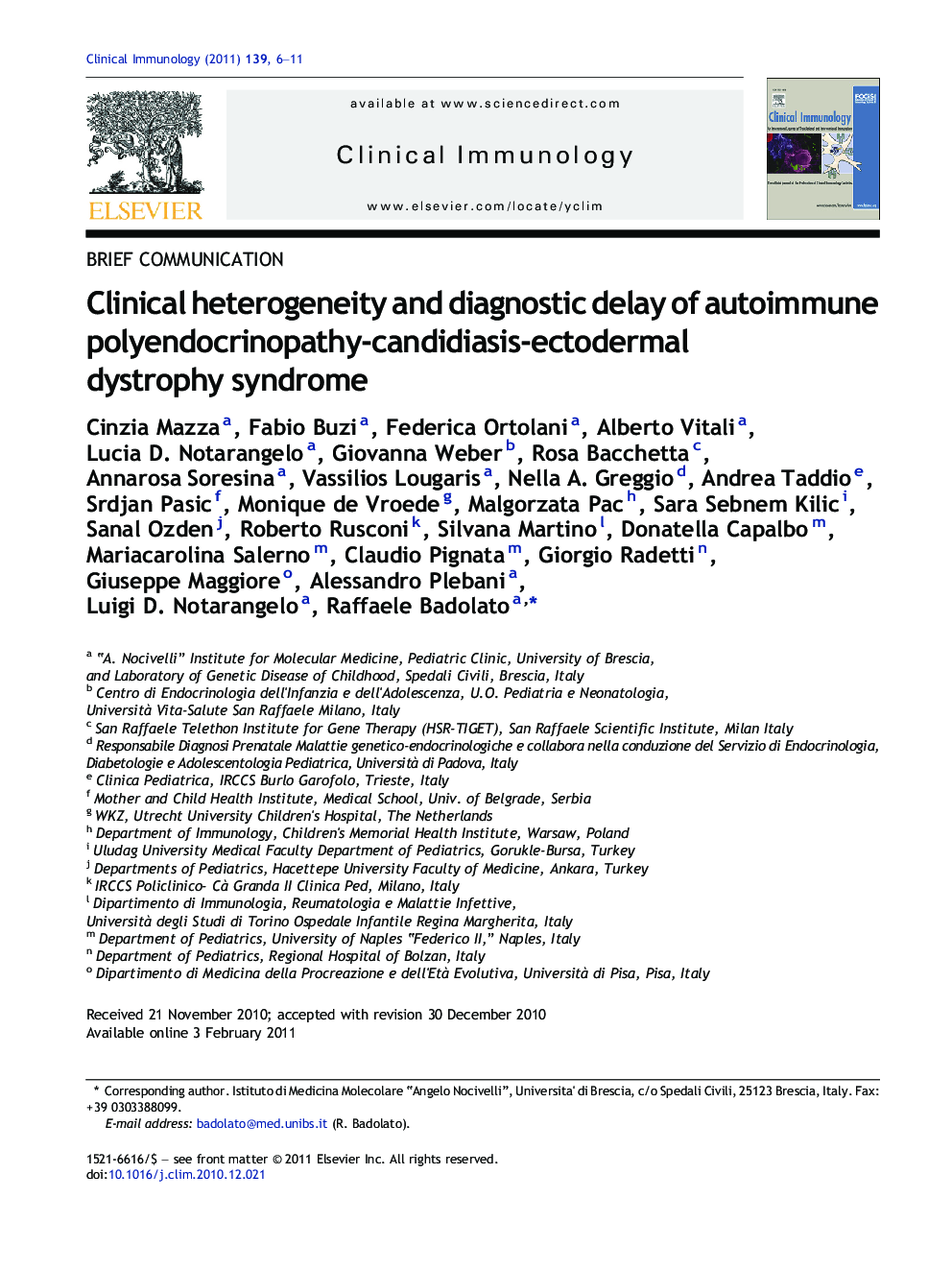| Article ID | Journal | Published Year | Pages | File Type |
|---|---|---|---|---|
| 6087851 | Clinical Immunology | 2011 | 6 Pages |
Autoimmune polyendocrinopathy-candidiasis-ectodermal dystrophy (APECED) is a rare autosomal recessive organ-specific autoimmune disorder that is characterized by a variable combination of (i) chronic mucocutaneous candidiasis, (ii) polyendocrinopathy and/or hepatitis and (iii) dystrophy of the dental enamel and nails.We analyzed the AIRE (autoimmune regulator) gene in subjects who presented any symptom that has been associated with APECED, including candidiasis and autoimmune endocrinopathy.We observed that 83.3% of patients presented at least two of the three typical manifestations of APECED, while the remaining 16.7% of patients showed other signs of the disease.Analysis of the genetic diagnosis of these subjects revealed that a considerable delay occurs in the majority of patients between the appearance of symptoms and the diagnosis. Overall, the mean diagnostic delay in our patients was 10.2Â years. These results suggest that molecular analysis of AIRE should be performed in patients with relapsing mucocutaneous candidiasis for early identification of APECED.
